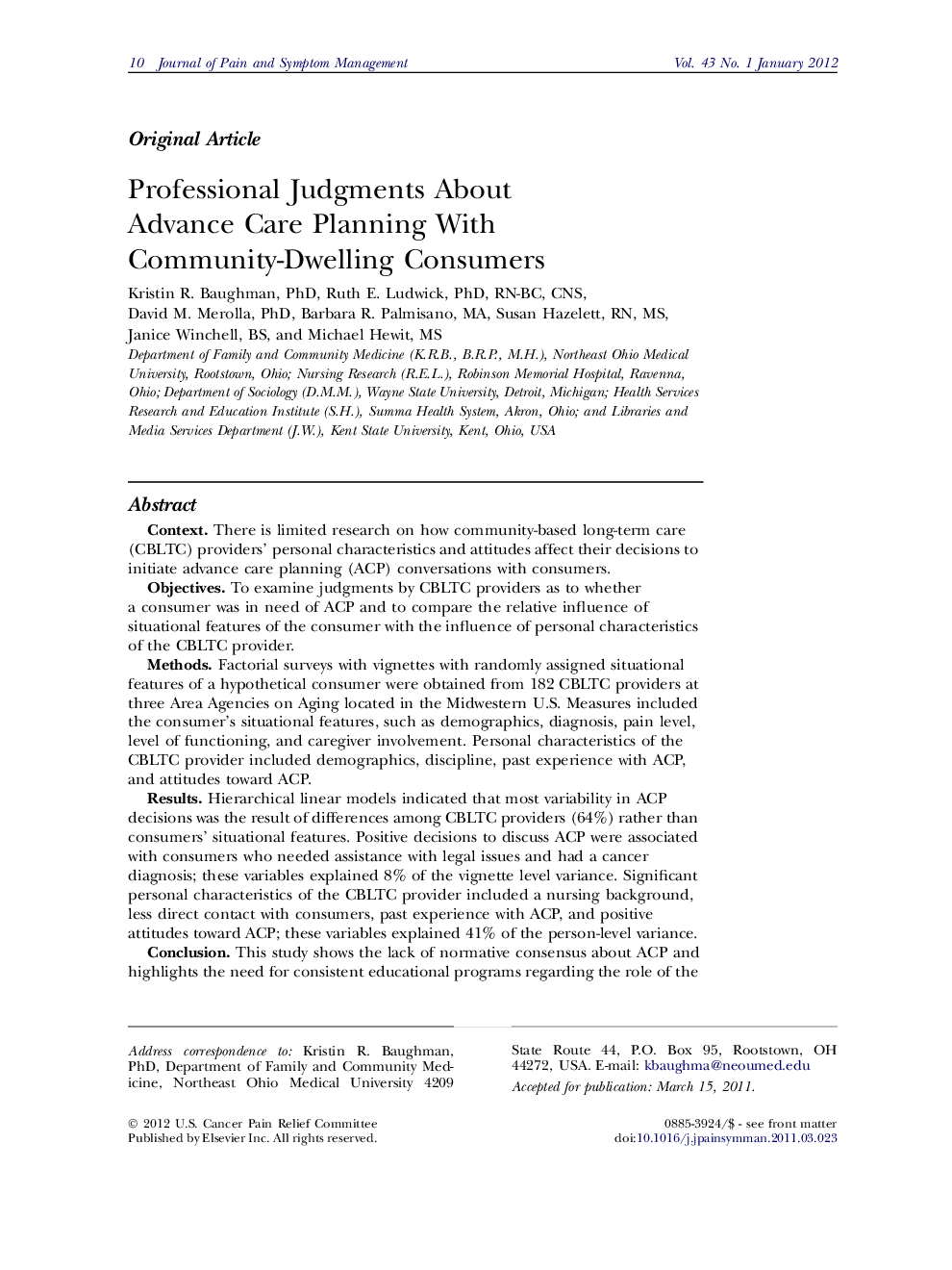| Article ID | Journal | Published Year | Pages | File Type |
|---|---|---|---|---|
| 5881475 | Journal of Pain and Symptom Management | 2012 | 10 Pages |
ContextThere is limited research on how community-based long-term care (CBLTC) providers' personal characteristics and attitudes affect their decisions to initiate advance care planning (ACP) conversations with consumers.ObjectivesTo examine judgments by CBLTC providers as to whether a consumer was in need of ACP and to compare the relative influence of situational features of the consumer with the influence of personal characteristics of the CBLTC provider.MethodsFactorial surveys with vignettes with randomly assigned situational features of a hypothetical consumer were obtained from 182 CBLTC providers at three Area Agencies on Aging located in the Midwestern U.S. Measures included the consumer's situational features, such as demographics, diagnosis, pain level, level of functioning, and caregiver involvement. Personal characteristics of the CBLTC provider included demographics, discipline, past experience with ACP, and attitudes toward ACP.ResultsHierarchical linear models indicated that most variability in ACP decisions was the result of differences among CBLTC providers (64%) rather than consumers' situational features. Positive decisions to discuss ACP were associated with consumers who needed assistance with legal issues and had a cancer diagnosis; these variables explained 8% of the vignette level variance. Significant personal characteristics of the CBLTC provider included a nursing background, less direct contact with consumers, past experience with ACP, and positive attitudes toward ACP; these variables explained 41% of the person-level variance.ConclusionThis study shows the lack of normative consensus about ACP and highlights the need for consistent educational programs regarding the role of the CBLTC provider in the ACP process.
